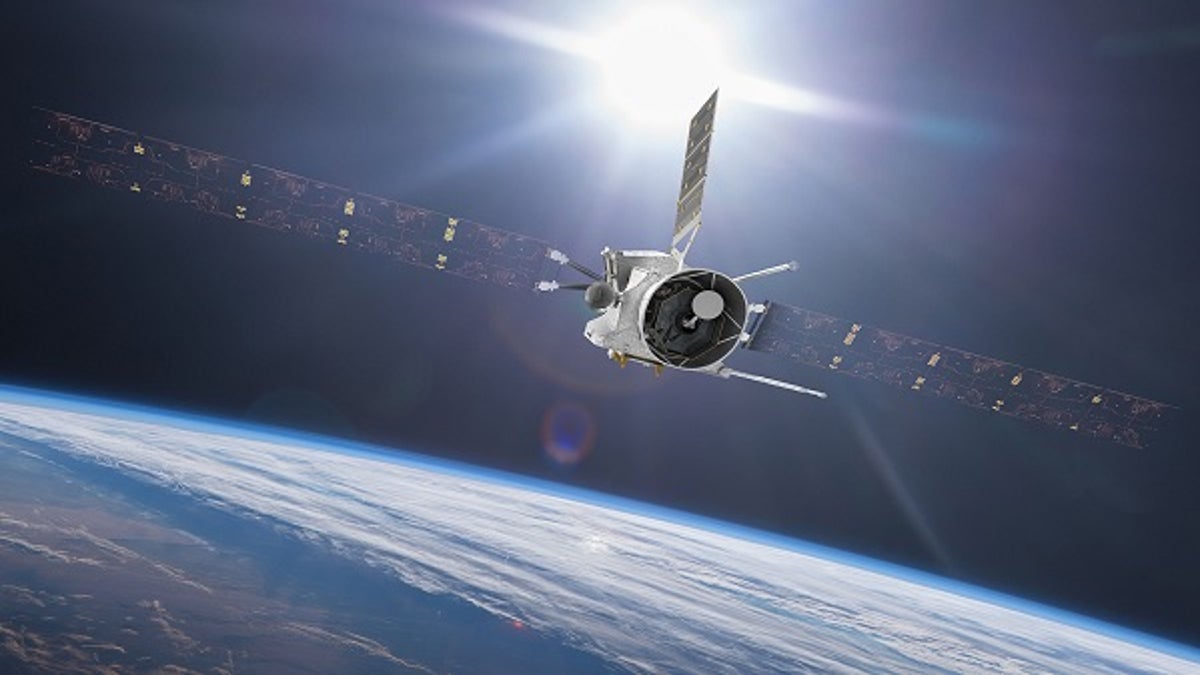Fox News Flash top headlines for October 14
Fox News Flash top headlines are here. Check out what's clicking on Foxnews.com.
Following the discovery of phosphine gas in the clouds of Venus last month, raising the prospects of life, a spacecraft is set to fly by the second planet in the solar system Wednesday.
The craft, known as BepiColombo, is set to fly past the planet Wednesday night, reaching its closest point at 11:58 p.m. EST, according to the European Space Agency.
BepiColombo, which has a primary mission of studying Mercury, will approach Venus from dayside and have a "minimum distance" of 10,420 miles (16,771.5 kilometers). "The flyby #1 configuration is optimal for both atmospheric and ionospheric/magnetospheric investigations of the Venus close environment," the ESA wrote in its post.

BepiColombo Earth flyby (ESA/ATG medialab)
VENUS IS A 'RUSSIAN PLANET,' KREMLIN TOP SCIENTIST CLAIMS
Speaking with Business Insider, planetary researcher Jörn Helbert said the timing of BepiColombo's passage is remarkable. "It's [the timing] fantastic. Being able to take [this] data makes me very happy."
Helbert is using the spacecraft, which launched in October 2018 as a joint mission between the ESA and the Japan Aerospace Exploration Agency, for his research.

This May 2016 photo provided by researcher Jane Greaves shows the planet Venus seen from the Japan Aerospace Exploration Agency's Akatsuki probe. A report released on Sept. 14, 2020, says astronomers have found a potential signal of life high in the atmosphere of our nearest neighboring planet. (J. Greaves/Cardiff University/JAXA via AP)
In addition to the fortuitous timing, BepiColombo has a tool on board that could potentially confirm the presence of phosphine gas in Venetian clouds, the Mercury Radiometer and Thermal Infrared Spectrometer (MERTIS), Helbert added.
NASA CHIEF SAYS VENUS IS 'ONE STOP IN OUR SEARCH FOR LIFE'
"The goal of MERTIS is to provide detailed information about the mineralogical composition of Mercury's surface layer," the ESA said in a separate post, noting it will study Mercury's surface composition, identify rock-forming minerals, map its surface and study the surface temperature of the planet.
BepiColombo was named after famed Italian scientist Giuseppe "Bepi" Colombo, who studied Mercury. It has two satellites, the Mercury Planetary Orbiter and Mio (Mercury Magnetospheric Orbiter, MMO), that will explore the first planet in the solar system.
BepiColombo's second flyby of Venus will occur on or about Aug. 10, 2021, at a significantly lower altitude (342 miles or 552 kilometers) in an effort to perform different investigations, the ESA added.
The craft will fly by Mercury six times before eventually entering Mercury's orbit in December 2025.
VENUS WAS MADE OF LAVA AND WAS NOT 'EARTH-LIKE' AFTER ALL, STUNNING STUDY SAYS
In September, new research from an international team of astronomers revealed the discovery of phosphine in the clouds of Venus. The scientists noted that on Earth the gas is only made industrially or by microbes that thrive in oxygen-free environments.
Venus, which has been called "Earth's evil twin," has an extremely harsh climate, with a surface temperature of 864 degrees Fahrenheit. In July, researchers revealed that Venus has nearly 40 active volcanoes on its surface.
In late 2019, NASA said it was working on a stingray-like spacecraft to explore the planet.

